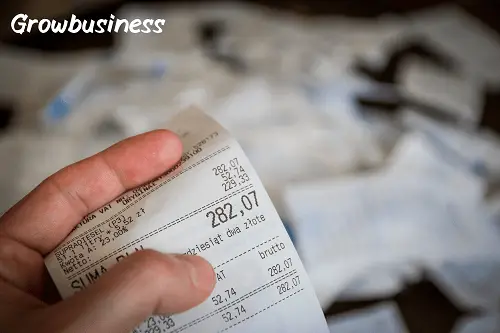Bonfield Business Taxes: A Comprehensive Review
Business:
Business taxes in Bonfield, Illinois, are an important part of knowledge that entrepreneurs and owners need to grasp to be able to comply with local, state, and federal requirements. Bonfield is a village in Kankakee County, Illinois. Like any municipality, there are certain tax obligations businesses must fulfill. These taxes support local infrastructure and contribute to several services that benefit the community. Knowing Bonfield taxes is important for new companies that have been in operation for quite some time to avoid charges and penalties.

Types of Business Taxes in Bonfield:
Business:
- Local Taxes: Bonfield, like many other local governments, offers a variety of taxes geared toward funding community services. There are:
- Sales Tax: Illinois imposes a sales tax on goods and services sold within the state, and collects this from their customers. Bonfield companies are subject to the state sales tax, and its revenue is shared with the local municipalities. Bonfield, being part of Kankakee County, also benefits from local sales tax distributions.
- License Tax: Businesses in Bonfield have to obtain a license from the village. The license is requiredform all operating within the limits of the village. In most cases, obtaining this license involves a fee, and the fee to pay for the license differs with the type of business.
Business:

- State Taxes: Illinois charges several taxes that apply to the state. These are usually administered by the Illinois Department of Revenue:
- Income Tax: Illinois is subject to state income tax and, in certain areas, local income tax. The state income tax rate for corporations is 7%, and for individuals, it is a flat rate of 4.95%. Must annually file income tax returns, and may also have the obligation to make estimated tax payments during the year.
- Franchise Tax: In Illinois, there are some, especially corporations, that pay a franchise tax. It is imposed according to their authorized capital, net worth, or income.
- Employment Taxes: must withhold state income tax from wages paid to employees. They must also pay unemployment insurance and workers’ compensation funds. More importantly, Illinois requires it to contribute to the state’s unemployment insurance account, where benefits are administered to unemployed workers.
- Federal Taxes: At the federal level, operating in Bonfield must comply with tax obligations established by the Internal Revenue Service;
- Federal Income Tax: All business ventures, whether they are sole proprietorships, partnerships, corporations, or LLCs, must file an income tax return with the IRS. The federal corporate income tax rate is 21%.
- Payroll Taxes: Employers are required to withhold Social Security and Medicare taxes from their employee’s wages and match those contributions. Businesses also have the responsibility of paying federal unemployment tax, FUTA.
- Excise Taxes: Depending on the type of, excise taxes might apply. These are taxes charged on specific goods or services, such as fuel, alcohol, and tobacco.
Key Tax Considerations for Bonfield Owners:
Business:
- Tax Filing Deadlines: Bonfield owners need to observe different deadlines for filing both state and federal taxes. Most of them occur once a year but some have to make estimated quarterly payments. If such deadlines are missed, penalty charges as well as accrued interest arise.
- Tax Deductions and Credits: Businesses in Bonfield are eligible for different types of deductions and credits that will reduce their tax liabilities. These include the operating cost, equipment purchase, and employee wages of a business. Federal and state governments also offer tax credits for those who invest in renewable energy or hire disadvantaged workers.
- Tax Planning: The most important factor in tax liability minimization is proper tax planning. A local, state, and federal tax code consultant or accountant can help devise the best possible tax strategies and avoid sudden tax burdens.
Frequently Asked Questions about Bonfield Taxes:
Business:
1. What taxes do I need to pay as an owner in Bonfield?
As a business owner in Bonfield, you have to pay various taxes, such as sales tax, license tax, property tax, income tax, and employment-related taxes. These taxes are levied by local, state, and federal authorities.
2. Do I need a license to operate in Bonfield?
Yes, businesses operating in Bonfield must obtain a license. The application process involves paying a fee, and the fee amount varies depending on the nature of the business.
3. How do I file my taxes in Bonfield?
Business taxes in Bonfield are filed with the Illinois Department of Revenue for state taxes, with the IRS for federal taxes, and with the Kankakee County Assessor’s Office for property taxes. Filings done locally are usually online or by direct submission to the proper authority.
4. What happens if I miss a tax filing deadline?
Missing a tax filing deadline can lead to penalties and interest charges. It is, therefore important to be organized and file on time to avoid extra costs. You can apply for an extension, but the taxes are due by the original deadline.
5. Can I write off expenses on my taxes in Bonfield?
Yes, can definitely write off expenses that are legitimate expenses for tax purposes. This could include equipment costs, supplies, travel expenses, and employee wages, among other things. A tax professional can help determine which ones are deductible.
Conclusion:
Business:

Business taxes in Bonfield are not much different from those in other Illinois municipalities, as they involve local, state, and federal obligations. Understanding these tax requirements and keeping up with filings will ensure compliance and avoid unnecessary penalties. Whether you are a small business or a larger enterprise, proper tax planning is essential for long-term success.
